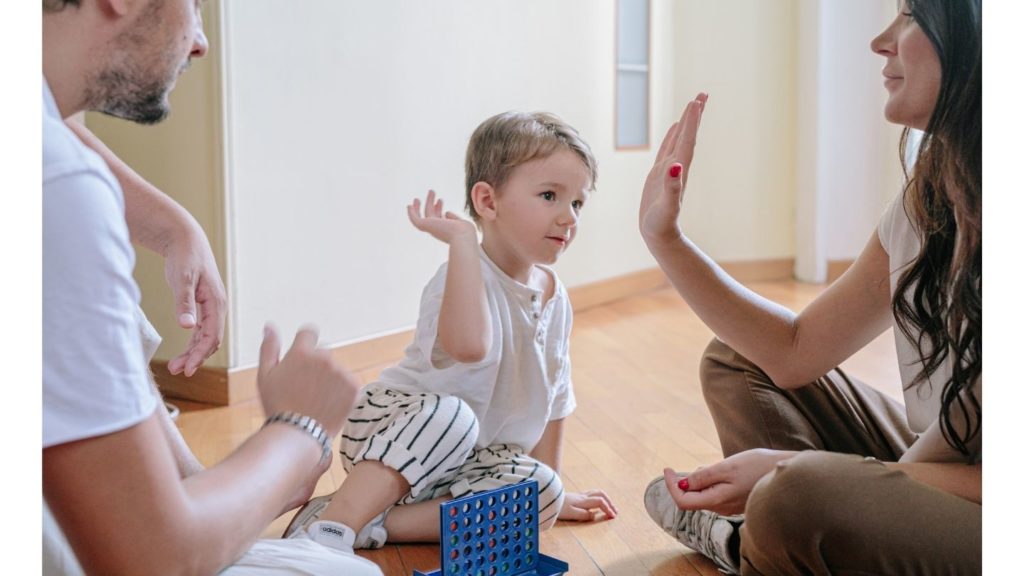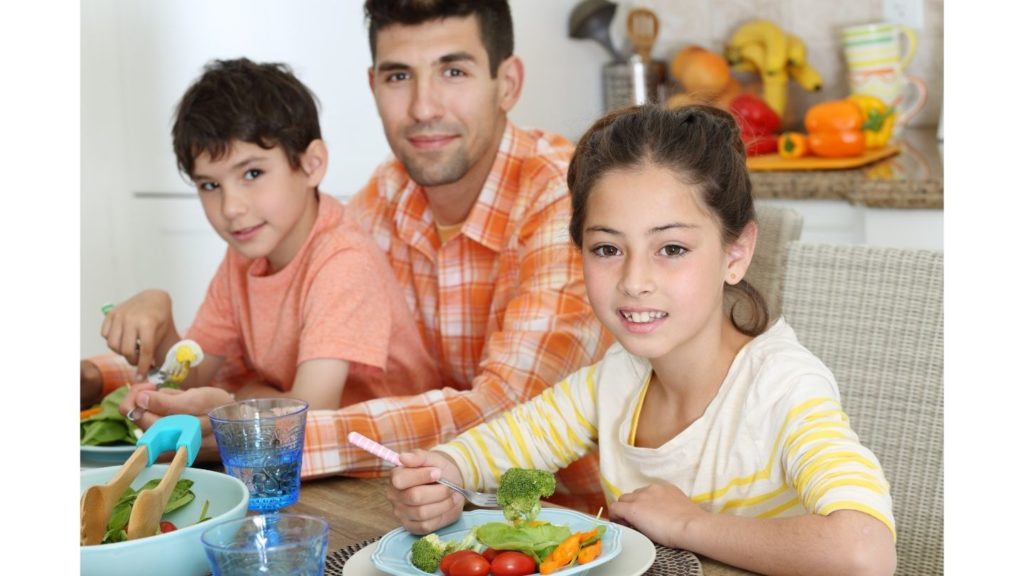Learning to try new foods and stay hydrated are important for kids. But sometimes, kids can be really picky about what they eat and drink. And when they don’t eat or drink enough, it can cause problems like constipation and/or dehydration. There can be many factors relating to eating, drinking and potty issue with kids. You may feel like you have tried everything, but your kid still isn’t cooperating. Maybe your child is going through a phase, or maybe there’s a larger issue at play.
If you are struggling with getting your kids to eat, drink or use the potty, here are some tips that may help:
1. Evaluate the situation.
There are physical, mental and emotional factors to consider. As a parent, you want to be supportive and understand what’s going on with your kids.
Some physical factors that play a part are:
– Allergies
– Sensitivities to certain foods
– Intolerances to certain foods
– Parasites, mycotoxins, bacteria, viruses
– Physical discomfort or pain (e.g. teething, inflammation, past injuries such as falls & concussions – these can have lasting effects if not treated properly)
Is your child sick? Teething? Going through a growth spurt? These can all affect appetite and potty habits.
Look for medical conditions. There could be an underlying medical condition that is causing the potty issue. If you think there may be a medical reason for your child’s eating or potty issues, speak to your pediatrician.
Mental and emotional factors can include:
– Anxiety or stress about something (e.g. starting school, moving house, seeking approval)
– Lack of confidence or low self esteem
– Having experienced trauma or abuse or transgenerational issues
– Grief or loss
– Lack of control in their life
– Poor body image
– Perfectionism
While it may be hard to think that your little one is dealing with any of the above, it’s important to remember that kids are going through a lot these days. Be attuned to any changes in behavior or mood that may indicate an emotional issue.
2. Talk to your kids.
If you can, try to have an open and honest conversation with your kids about what’s going on. See if they can share their feelings with you. If they are worried about something, see if you can help them to address the issue.
It’s important to use language that your child will understand. If they are very young, try using simple words and short sentences. Remember that kids under the age of 8-10 will understand emotions better than logic. Often times kids are smart enough to agree to a parents logic, but may not fully understand it in order to reproduce the correlating actions that may be connect to the logic. For example, a parent may say to a child, “It’s important to eat breakfast because it will help you concentrate in school.” The child may agree and nod their head, but if they don’t understand the emotion of “feeling tired”, they may not make the connection that breakfast will help with that. Remember that most children naturally want to make their parents happy and will agree to keep the peace. If your child is no longer following that example, they may have lost confidence in you and/or believe they must make their own choices since they don’t trust your judgments. This is an indicator that you may need to have more one-on-one conversations about choices and why they are important instead of lectures or punishments.
Try to avoid using phrases such as “You need to…”, “You should….” Instead try phrases like, “When you feel X, what do you think would help?”, “What do you think would be a good choice in when you’re feeling X?”

3. Create a safe and supportive environment.
For some kids, just feeling safe and loved is enough. Make sure that mealtimes are calm and relaxed. Avoid any pressure or stress around food and potty issues.
Music is one the great equalizers. It can help to soothe and calm both kids and adults. Try playing soft, relaxing music at mealtimes. You can also try using a diffuser with calming essential oils such as lavender or chamomile. Be sure to let your child choose which music calms them the most and which scent they prefer.
Be aware of the volume and intensive/tone of your voice. Children pay more attention to your tone and cadence than the actual words you use. Many parents get stuck in the habit of using a broadcasting or excited voice to motivate their children. While this may work initially, it can quickly become overwhelming for a child. Instead, try speaking in a soft, slow voice. This will help to calm and soothe your child.
Slowing down your speech and using a lower, warmer tone will let your child know that you’re there for them and that they can trust you. Avoid any raised voices or intensification in your voice as this will only add to the stress. If you find yourself getting angry or frustrated, take a break. It’s important that kids feel safe and loved, not scared or threatened.

4. Encourage positive self-talk.
Help your child to identify and label their emotions. This will help them to understand and cope with their feelings.
Try to encourage positive self-talk. For example, if your child is feeling anxious about going to school, you could say something like, “I know you’re feeling scared right now. It’s okay to feel that way. I’m here for you. We’ll get through this together.” Remember the soothing tone of voice. Adding some physical affection with the positive language can go a long way to building trust and confidence.
If you’re not sure what to say in a specific situation, try using some of these phrases:
“You’re doing great.”
“I’m proud of you.”
“That was a difficult situation. I’m glad you handled it so well.”
“You’re so smart/cute/funny.”
“I love you.”
If you’re still struggling, try reaching out to a therapist or counselor who can help you to come up with some specific language that is tailored to your child’s needs.
*Remember that positive language is not if you do _____ then you get _____. This is called conditional love and does not help to build trust or confidence. When it comes to rewards for good behavior the right timing and amount will vary from child to child. Rewards are most effective when there are no prior expectations attached to them. You know your child best, so use your best judgment.

5. Be a role model by helping them to develop a healthy relationship with food.
Children learn by example, so it’s important to model healthy behaviors. This includes eating a nutritious diet, being physically active, and managing stress in a healthy way.
If you want your child to have a healthy relationship with food, it’s important that you model that behavior. Avoid making comments about your own body or food choices. Instead, focus on the joys of eating and how good nutritious food makes us feel.
It’s also important to avoid using food as a reward or punishment. This can lead to a child developing an unhealthy association with food.
Use mindfulness. Mindful eating is a practice that can help both kids and adults to be more present and aware while eating. It can help to prevent overeating and improve digestion. When we’re mindful of our eating, we’re more likely to make healthier choices.
Here are some tips for teaching mindful eating:
– Set a regular time for meals and snacks. This will help to create a routine.
– Turn off all screens during meals. This includes TVs, phones, and laptops.
– Sit down at the table to eat.
– Serve food on a plate or in a bowl.
– Take a few deep breaths before starting to eat.
– Close your eyes and smell your food. Imagine what it will taste like.
– Eat slowly and chew each bite thoroughly.
– Pay attention to the taste, smell, and texture of the food.
– Notice how your body feels before, during, and after eating.
– When you’re full, stop eating.
While you don’t need to be perfect, it’s important to show your child that you’re making an effort to live a healthy lifestyle.
6. Help your child feel in control.
If you are struggling with kids who refuse to eat or use the potty, it may be because they feel like they have no control in their life. Consider that a child has almost no control over things like when they wake up, what they eat, when they go to bed, etc. It’s no wonder that they may act out in an attempt to gain some control. The first things a child may learn they have control over is eating and pottying. At this point it’s important to assess how much control your child actually has in their life.
If you find that your child has very little control, try to give them more choices. For example, rather than saying, “It’s time to eat,” say, “Would you like to have a PB&J or grilled cheese for lunch?” If they refuse both, move to another choice like, “What color of cup will make your juice taste the best?”
For pottying, rather than saying, “It’s time to go potty,” say, “Do you want to use the big potty or the little potty?” Giving choices whenever possible will help. If they refuse both, ask, “Does it make you feel better if I stay in the bathroom with you?” or “Will it help you feel better if I hold your hand while your on the potty?”
Try to give them some choices and let them make decisions for themselves where possible. It’s important to give choices that are not weighted with too much responsibility. This can help them to feel more in control and may improve the situation.

7. Remember that children are a reflection of their parents.
This is something that’s important to remember when parenting in general, but it’s especially relevant when it comes to food and potty issues. Children are always watching and observing their parents. They learn by example, so it’s important to be mindful of our own behavior.
Inside our brain we have mirror neurons. These neurons fire when we see someone else performing an action, as though we are doing it ourselves. This is how children learn. So, when a parent is eating mindfully, the child’s mirror neurons will fire and they will learn how to eat mindfully. The same is true for pottying. If a parent models positive behavior, the child will learn from that. As odd as it may seem, if your child has not ever seen you on the potty, or doesn’t often, they may not understand why they need to so often or at all.
Take some time to really ask yourself, how do I feel about food and drinks and the potty? What messages am I sending to my child? If you’re not sure, take some time to think about it or even talk to a friend or therapist. If we’re making negative comments about our bodies or food (without even knowing it) our children will learn from that. It’s important to be as positive as possible about food, drinks, because that’s how our children will learn to feel about it too.


